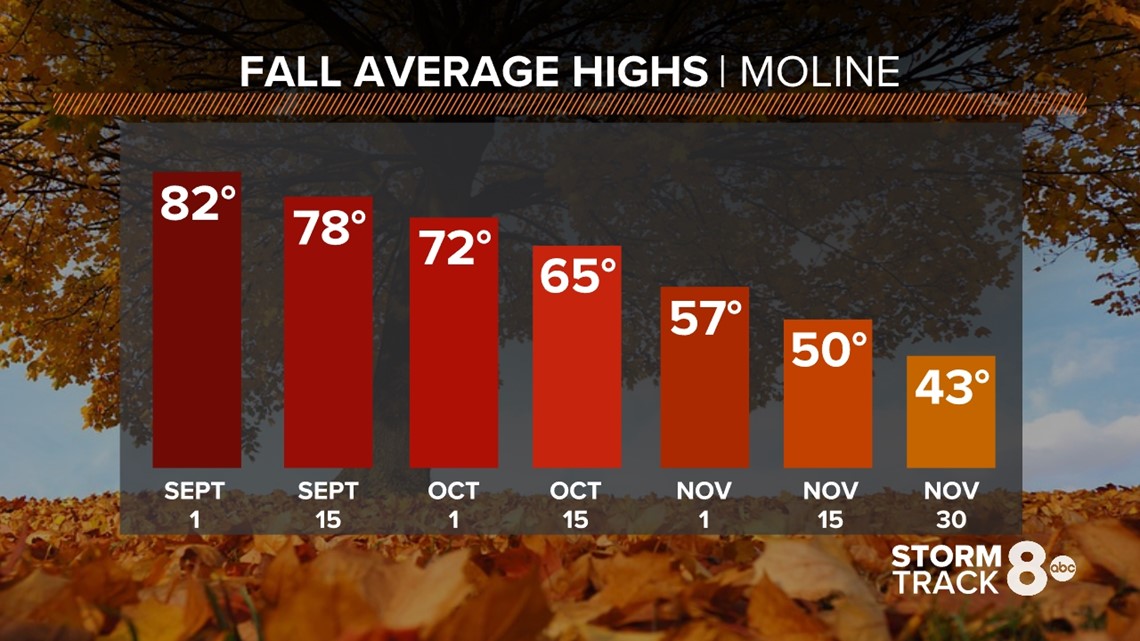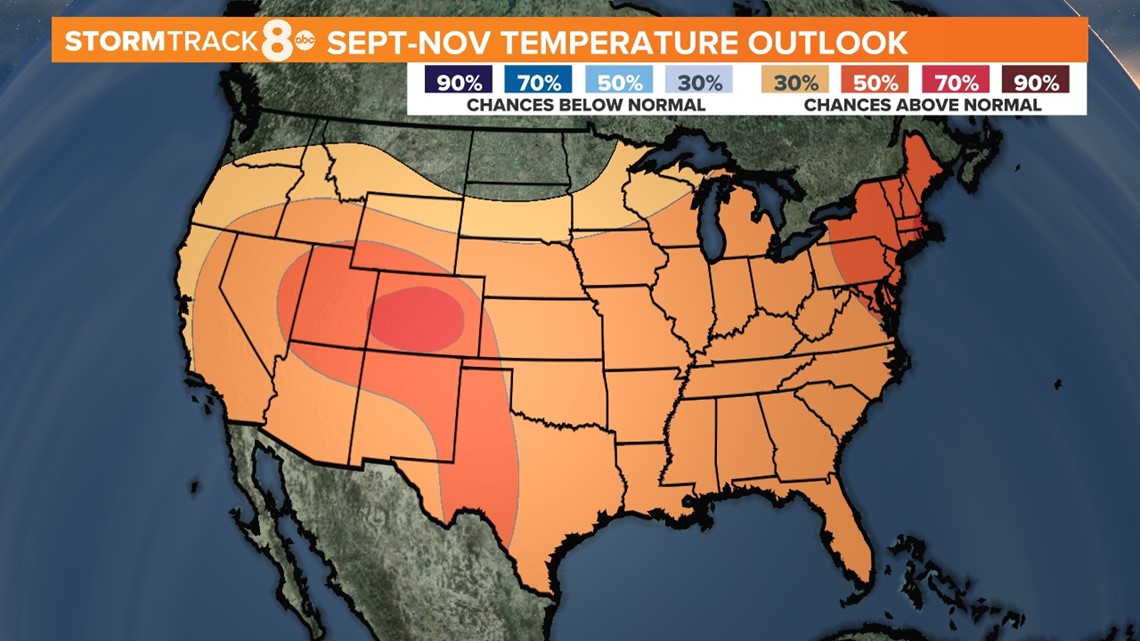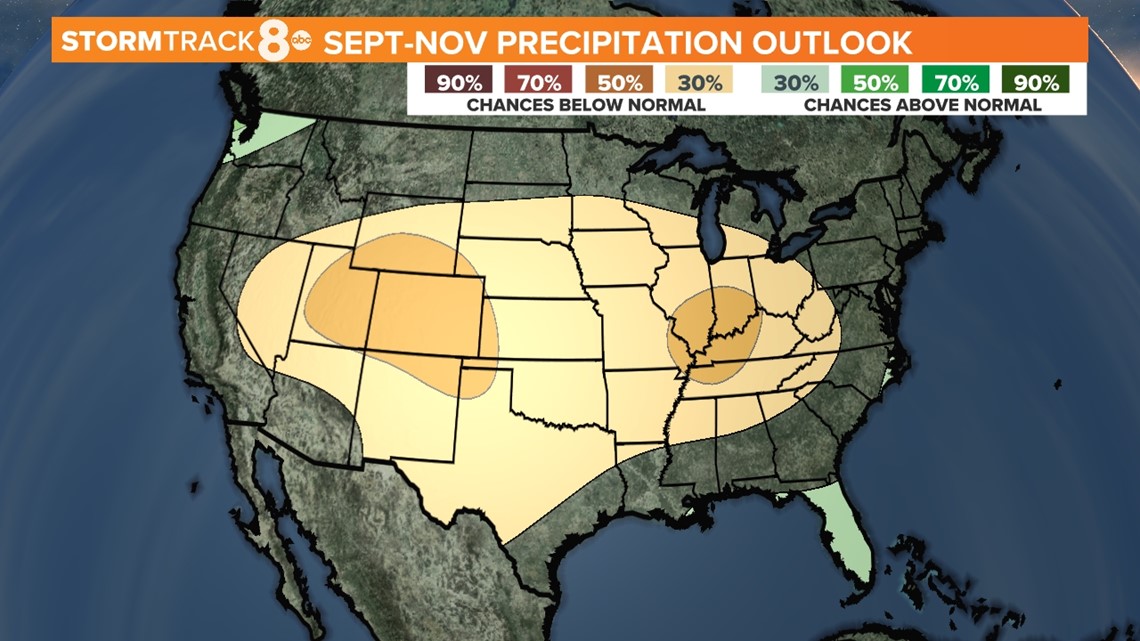MOLINE, Ill. — Get your pumpkin spice and sweaters ready because meteorological fall starts Thursday, Sept. 1! Meteorological seasons break down the seasons into three months based on the temperature cycle of the year. It is also more practical for record keeping for meteorologists and climatologists.
Astronomical fall will begin on Sept. 22. Astronomical seasons follow the Earth's orbit around the sun. Fall begins with the autumnal equinox, where the suns rays directly align with the equator. Equinox stands for "equal night," meaning we usually see 12 hours of daylight and 12 hours of night.
Fall is the season that we see the biggest change in temperatures through the next three months. Dropping from an average high of 82° at the beginning of September to an average high of 43° by the end of November.


What can we expect this year? The Climate Prediction Center releases long-range outlooks for each season by watching trends of large scale weather patterns such as La Niña. This year, our fall outlook is trending to be slightly warmer and drier than normal.




Here are some dates to keep in mind during our fall season:
- Sept. 5 - Labor Day
- Sept. 22 - Astronomical fall
- Oct. 15 - Average first frost date (low temp <= 32°)
- Oct. 27 - Average first hard freeze date (low temp <= 28°)
- Oct. 31 - Halloween
- Nov. 6 - Daylight saving time ends
- Nov. 8 - Election Day
- Nov. 20 - Average first measurable snowfall
- Nov. 24 - Thanksgiving

